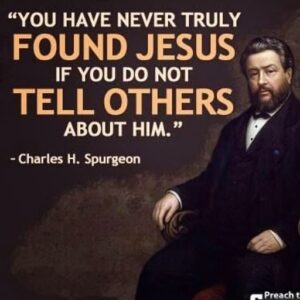Fourth Sunday after Epiphany
Sermon edited
Once upon a time….
Every basketball team has a coach. I’d like to tell you a story about one of those coaches this morning. It’s a simple story. Once upon a time there was a basketball coach. He was a wise and crafty coach. A good coach indeed. But in this particular year a very strange thing happened to him. All of the players that tried out for his team were very, very tall. They were all good at scoring points and they all wanted to play the same position! They all wanted to be the center of the team.
The coach gathered his players together. He told them that a good basketball team needs players with many different kinds of skills. A team needs players who can bring the ball from one end of the court to the other – we’ll call them guards. A team needs players who can stop the other team from scoring points – we’ll call them defenders. A team needs players who can pass the ball to the other team members. And, of course, the team needs a center.
“Now,” said the coach, “how many of you want to be guards?” No one raised a hand. “How many want to be good defenders?” Again, no one raised a hand. The coach was getting a bit upset. “how many of you want to learn to pass the ball well?” His question met still another silence. Finally he asked, “How many of you want to play center and shoot the ball and score points?” Every hand went up!
The coach was frustrated. “how can I have a basketball team with five centers!” he shouted. “That’s impossible. It can’t be done. You can’t all play center. If we have five centers, who will bring the ball down the court? If we have five centers, who will be the experts on defense? Who will pass the ball to anyone else? Basketball,” the coach said, “is a game of teamwork. Teamwork!” This time he shouted it. he repeated himself softly, “teamwork. You can’t all be superstars. Teamwork! That’s the name of the game. We needs guards and defenders and passers and centers and lots more if we’re going to have a good team here.”
The coach finished his speech with a good deal of gusto. He had made his point. he’d laid it on the line.
He started his questioning again. Slowly this time. “How many of you want to be guards?” He said it confidently. He was sure some would volunteer. Surely they got his point about teamwork. he was wrong. Nobody raised a hand. These players weren’t interested in teamwork. Each of them wanted to be the center of attention. Each of them wanted to be the star. Each of them counted himself of more importance than the team.

Paul and the Superstars
St. Paul wasn’t a basketball team builder. He was a church builder. Since we’re all members of this congregation, this church, his words should be of interest to us. He had a problem, so it appears, with the church in Corinth. The problem, to put it simply, was that many Corinthian Christians thought that they were spiritual superstars. They wanted to grab all the attention. They wanted to be the center of everything. They counted themselves as the most important people in the church.
Some of these spiritual superstars worked miracle, some of them performed acts of healing, some were prophets, some were teachers, some spoke in tongues and so on. The problem seems to be that each of these superstar Christians thought that his gift or talent was the only thing that counted in the church. Paul’s words to them at the beginning of our text sound a lot like the coach’s talk to his team. “Are all prophets?” said Paul. The answer which he obviously implies is, no. “Are all teachers? Do all work miracles? Do all possess gifts of healing? Do all speak with tongues?”
We can almost hear Paul say, “How can you have a church with all teachers?” (Who would they teach?) “How can you have a church with all miracle workers?” (Who would they heal?) “How can you have a church with all tongue speakers?” (Who would be edified?)
Paul and the coach faced a similar situation. They had each run headlong into human nature at it s prideful height. Each of the basketball players we talked about wanted his talent to be the center of the team. Each counted himself of highest importance. The coach had to talk to them about teamwork.
The Corinthian Christians each wanted his gifts to be the center of the church’s life. They counted themselves of the highest importance. Paul had to talk to them of a more excellent way …. the way of love.
Sin and Grace
Let’s pause in our story just long enough to say a word about human nature and a word about love. Then maybe we can hear Paul’s great hymn of love in all its profundity.
The very first story about human beings in the Bible is a story about people counting themselves first. You know it well, It’s the story of Adam and Eve. Remember the tempter’s challenge to Eve? “Eat of the tree,” said the tempter, “and you will be like God. Why should God be first and you second? Why should you serve him, worship him, exalt him when you can serve and exalt yourself?
That was the temptation made to Adam and Eve. That’s always the temptation. That’s the temptation that faces you and me every day. Who is going to be first in our lives? God or myself? When I count myself first, when I count myself more highly than anyone else, all kinds of actions follow logically. I want to be the central person on the basketball team. I want to be the central person in the church. I want my ideas heard. I want my gifts recognized. I want to run the church. I want to run my community. I want to run the world. Indeed, I want to be like God!!!
We’re all like that in one degree or another. That’s our sinful human nature. And do you know where it gets us? Nowhere. Absolutely nowhere. Because when the curtain rings down on our lives, when death’s bell tolls for us, we discover that ultimately we were wrong. We ten to live as if we are the center of all life. Death lays bare the folly of our pretenses. To play God, to count ourselves first, is a one-way street to nowhere!
Who will help us in our folly? Who will love us in the midst of our counting ourselves too highly? His name is Jesus. He can help us because he did what none of us can do. He did not count himself too highly. Paul says in Philippians 2:6 that though Jesus was in the form of God, he did not count equality with God a thing to be grasped. He emptied, himself, took the form of a servant, became obedient unto death, even death on the cross. Jesus Christ is God’s love-in-the-flesh. Jesus Christ counted us more highly than he counted himself. He put us first. That’s what love is all about. Love always counts the other higher than itself. Jesus Christ counted you more highly than he counted himself. That’s a yesterday word. Jesus Christ counts you more highly than himself. That’s a today word. You are loved by God in Jesus Christ. That’s true right now. In God’s eyes you count – you count very highly. You count enough for God to give his life that you might have life – eternal life.

You are the Body of Christ
That’s what Paul was trying to get across to the Corinthians. Surely members of our congregations need to hear it too. A congregation, said Paul, is built on love. You can’t have a church where everyone counts himself and his gifts and his talents more highly than he counts others. You only have a church, a working body, where people count others more highly than themselves. And the only way you’re ever going to do that is if your life is flooded through with love – God’s love. Love counts others more highly than it counts itself. Jesus Christ counts you more highly than he counted himself. When you are caught up in that kind of love then you are enabled, you have the possibility, of being ripped from your self-love. You, too, can count others more highly than you count yourself.
Love is patient, love is kind. It does not envy, it does not boast, it is not proud. It does not dishonor others, it is not self-seeking, it is not easily angered, it keeps no record of wrongs. Love does not delight in evil but rejoices with the truth. 1 Cor. 13: 4-6
Where that kind of love happens, you have the body of Christ in action. In that kind of love you are individually members of one another. That’s quite a place to be. It’s a place where you don’t have to count yourself first because many others count you first. Others use their gifts and talents for you. That is freedom. That frees you and me from ourselves so that we don’t have to count ourselves and our own gifts so highly anymore. Love enables us to use whatever gifts God has given us, from the gift of teaching to the gift of tongues, for others. Love enables us to count the needs of others more highly than we count the importance of our own gifts. Love enables us to count others more highly than we count ourselves.
Let us pray to God that such love might be the fiber of our congregation. Amen.
Richard Jensen
Wartburg Theological Seminary
Dubuque, Iowa
This sermon really gets to me. I get emotional when I read it. Humans tend to be more like the superstar-seekers than the counting-others-higher types. Isn’t that the state of social media and America today? It’s all so depressing. I KNOW we all need more Jesus but I also think we ALL need a little more LESS of ourselves!


